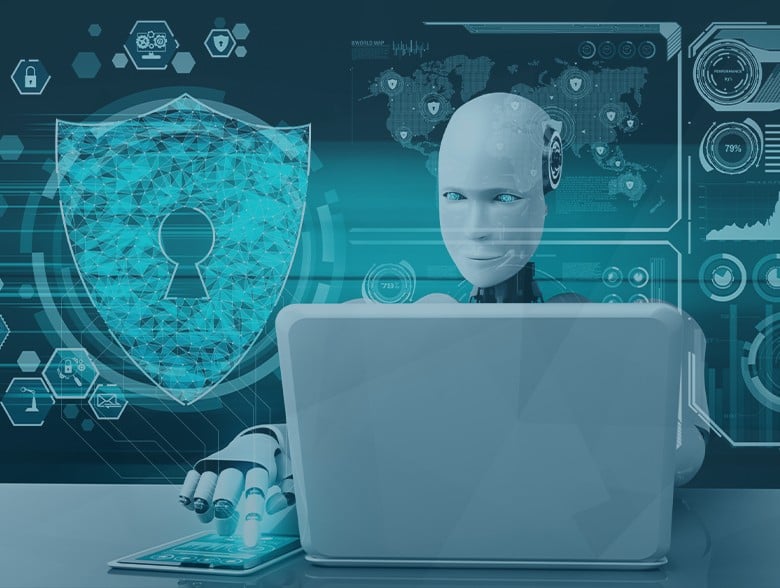By Alysia Silberg, CEO, Street Global
As technology increasingly connects us, people, businesses, and governments are more concerned with Cybersecurity than ever before.
The development of Artificial Intelligence (AI) provides a unique opportunity for combatting digital threats. But it also creates new challenges. Therefore, it’s essential to examine how AI intersects with Cybersecurity now and in the future.
AI is a computer science branch that focuses on building machines capable of performing tasks that typically require human intelligence. On the other hand, Cybersecurity aims to protect digital systems from attacks.
These related fields bring valuable insights to each other: AI can help detect cyber threats more quickly and efficiently, while Cybersecurity can train AI software using real-world data. Currently, AI is already being used in various ways in Cybersecurity. Some examples include automating threat detection and response systems or predicting network breaches based on historical patterns. This has resulted in more robust security infrastructures that flexibly respond to ever-changing threats.
However, integrating AI into existing security frameworks presents challenges, such as unpredictable false positives or overreliance on old data when dealing with new types of attacks.
Additionally, adversaries may use adversarial AI to circumvent digital defenses by spotting weaknesses an algorithm hasn’t been trained against. Despite these existing challenges, there’s still enormous potential for enhancing current cybersecurity standards through advances in AI research and development. For instance, future technologies might improve predictive capabilities or anomaly detection, so fewer attacks slip under the radar unnoticed.
An important consideration regarding artificial intelligence (AI) involves its use in Cybersecurity ethically. As technology advancements occur, so does the possibility of unethical practices by malevolent actors manipulating the system towards destructive purposes, which erode trust levels while breaching privacy boundaries.
Thus, establishing clear ethical principles for utilizing AI on cybersecurity matters helps preserve digital assets while elevating a company’s reputation among consumers.
In addition to this step lies implementing government-enforced laws against using said technology wrongfully which goes a long way toward discouraging individuals or groups from attempting anything similar effectively.
Moreover, investing sufficiently in high-quality, diversified data sources remains vital, as accuracy relies directly on quality.
Furthermore, ensuring rigorous data audit protocols helps avoid biased or flawed systems altogether caused by inferior quality material.
The entire process guarantees more dependable results when combating evolving cyber threats with superior resiliency where necessary – always making adaptive responses contextually appropriate.
In summary, Artificial Intelligence’s incorporation into Cybersecurity brings both hurdles and prospects that require careful assessment to enhance security measures without compromising other factors such as privacy or ethics.
Although introducing AI poses an opportunity for more robust digital defense mechanisms than before — thanks to greater adaptability and efficiency — adopting such systems requires utmost caution in navigating potential risks such as adversarial AI or ethical dilemmas. As a result of these ever-changing landscapes, implementation strategies require constant analysis for optimal results. Continually adapting to evolving scenarios is essential to attesting precisely during this digital age’s evolution phase. Needless to say, continuous learning is the key to moving forward, empowering employees and equipping them with the tools they need to exploit the potential of AI securely while amplifying their productivity. Furthering cyber-safety efforts is paramount in better protecting people from attacks by hackers aided by innovations therein.
In conclusion, AI is a tool that amplifies, not replaces, human abilities – which remains at the crux of cybersecurity initiatives.
About the Author
 Alysia Silberg, CEO and General Partner of the investment firm Street Global. Here are some additional information:
Alysia Silberg, CEO and General Partner of the investment firm Street Global. Here are some additional information:
Alysia Silberg is a cross between a survivalist and an industrialist – someone who has had to innovate and use whatever resources are available because they had to, and someone who sees opportunities in the marketplace and capitalizes on those.
A math and science prodigy, she nurtured her entrepreneurial instincts while still in grade school, starting her first business, an import-export agency, at age 11. Alysia also grew up in poverty in South Africa where she experienced violence, abuse, and even a gunshot wound.
Today, Alysia is a leading venture capitalist in Silicon Valley, where she mentors tech startups and helps them go public. She is CEO & General Partner of the investment firm Street Global.
Alysia can be reached on Twitter and Instagram via @AlysiaSilberg, on LinkedIn here, and at her website https://www.readunemployable.com/.


